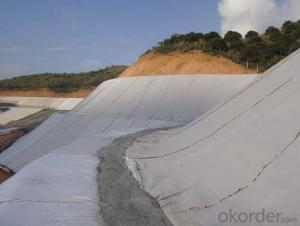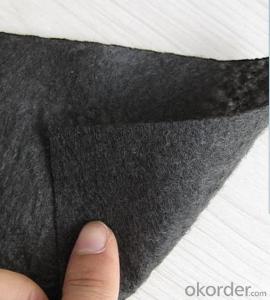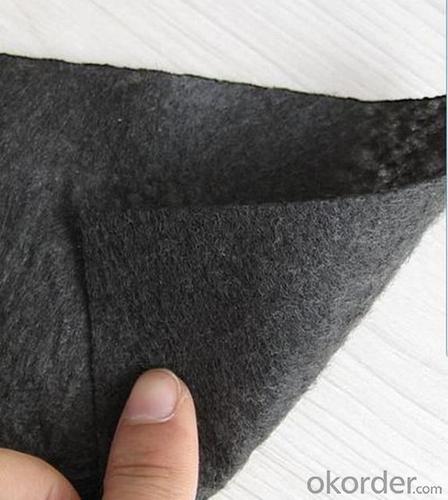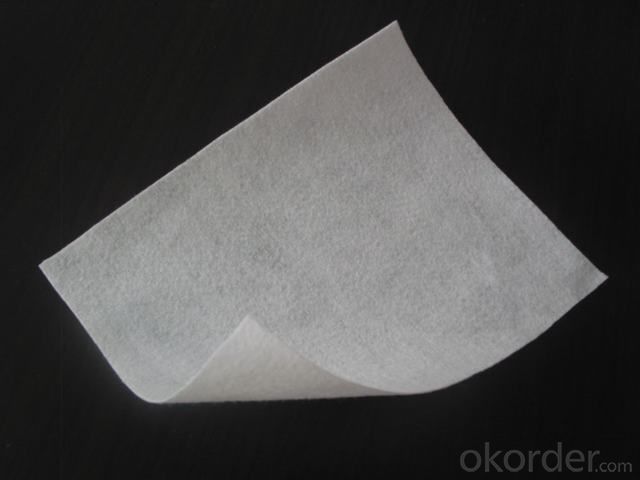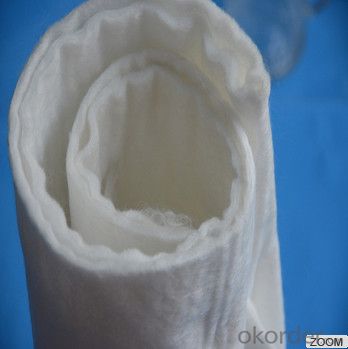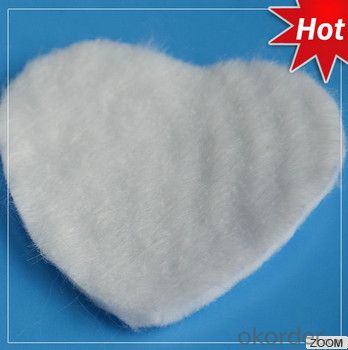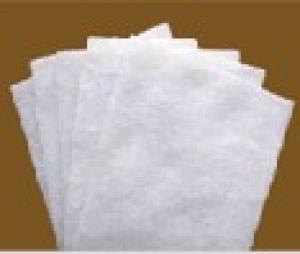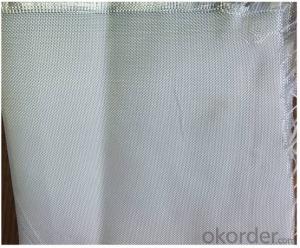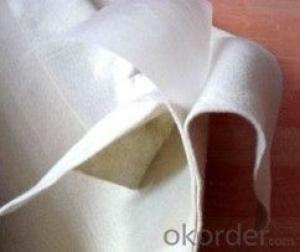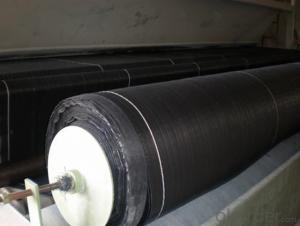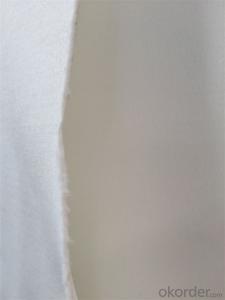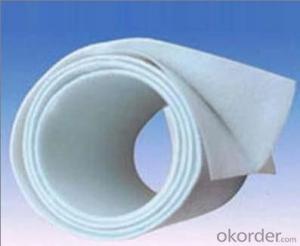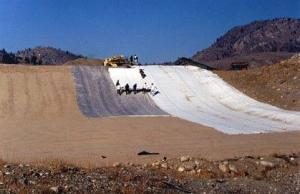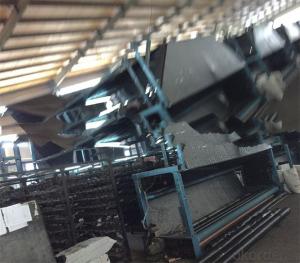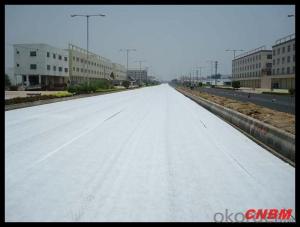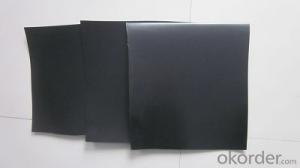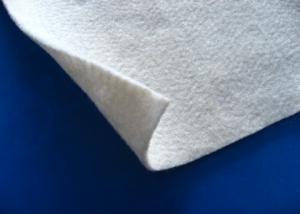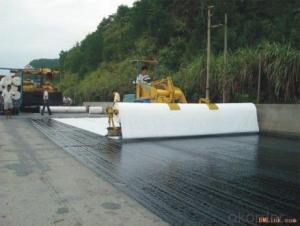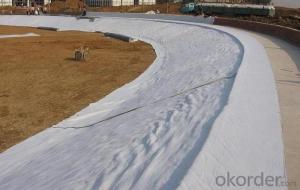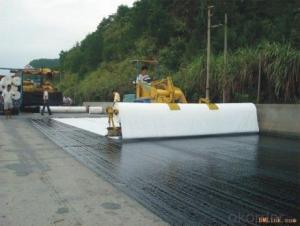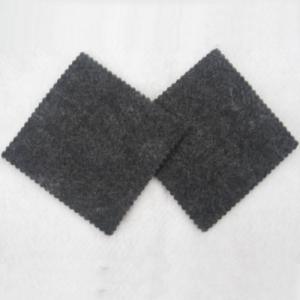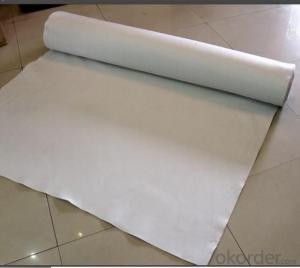Geotextile Pond Liner Polypropylene Geotextiles for River Engineering
- Loading Port:
- Qingdao
- Payment Terms:
- TT or LC
- Min Order Qty:
- 20000 m²
- Supply Capability:
- 1500000 m²/month
OKorder Service Pledge
OKorder Financial Service
You Might Also Like
Application of Polypropylene Geotextiles for River Engineering:
A: Subsurface drainage
B: Roadway separation
C: Hard armor underlayment
D:Asphalt overlay applications
Specification of Polypropylene Geotextiles for River Engineering:
Material | PP(polypropylene) or PET(polyester) |
Technics/process | Needle punched / thermally bonded |
Specification | 100g/m-1300g/m2 |
Width | 1m6m(as you demand) |
Length | 100m(as you demand) |
Colour | White, black |
Packing | PE film and woven cloth |
Load | According to your specification |
Payment terms | T/T or L/C |
Delivery time | Within 3 weeks |
Application | Geotextiles with various indicators of quality, with good stress -- strain and toughness, seepage performance and uniformity, and width, etc., And is applicable to roads, water, rail, mining dams, rivers, airports and other civil engineering, anyone in the works played reinforcement, segregation, filtration, filtration, drainage, and then extend the project life, reduced cost and easy construction, and it is easy to ensure the quality of the project. |
FAQ:
What is the main application of Polypropylene Geotextiles for River Engineering?
The main application of our Polypropylene Geotextiles for River Engineering is as follows: The highway, railway, soil-stone dam, breakwater, airport, backfill soil of retaining wall, slope protection, etc.
Where is your main market?
Our main market is in Middle East, South America and some African countries.
What is your advantages for Polypropylene Geotextiles for River Engineering?
One of the largest manufacturer of Polypropylene Geotextiles for River Engineering with advanced equipment, big production capacity and excellent quality.
- Q: How are geotextiles used in road construction?
- Geotextiles are used in road construction to enhance the performance and durability of roads. They are placed between the soil and the road surface to provide reinforcement, separation, filtration, and drainage. Geotextiles help to prevent the mixing of different soil layers, improve soil stability, and reduce the risk of soil erosion. Additionally, they can also be used to control the growth of vegetation and manage water flow, ultimately improving the overall quality and lifespan of the road.
- Q: Geotextile detection sampling, how many meters
- General a square meter can be, I professional production
- Q: Are geotextiles suitable for use in geocell mattress systems?
- Yes, geotextiles are suitable for use in geocell mattress systems. Geotextiles have excellent filtration and separation properties, which help in preventing soil erosion and maintaining stability within the geocell system. They also provide reinforcement and allow for the proper drainage of water, making them an ideal choice for use in geocell mattress systems.
- Q: Is there a geotextile in the center of the expressway
- This is needed, the manufacturer answers
- Q: What is the latest offer for geotextile prices?
- Geotextile Product Description: Geotextile is made of polypropylene, acrylic yarn as raw material woven by the geosynthetics, widely used in water conservancy, electricity, harbors, highways, railway construction and other geotechnical engineering. Geotextiles Category: Geotextiles a wide range of ordinary geotextile refers to the permeable geotextile, also known as short wire geotextile, polyester geotextile other filament geotextile, waterproof geotextile and so on. Geotextile Price Description: There are many manufacturers of geotextiles across the country, the product offers different prices affected by the impact of raw materials and regional differences, a good product should be a penny goods. The price according to product specifications offer direct contact consultation 182 power 6686 words 2233 to find professional manufacturers to understand, product prices dynamic. Hope to help you
- Q: Are geotextiles suitable for use in rain garden systems?
- Yes, geotextiles are suitable for use in rain garden systems. Geotextiles help to retain and filter water, prevent soil erosion, and provide stability to the rain garden system. They also allow water to infiltrate slowly, reducing runoff and promoting better water management in rain gardens.
- Q: Can geotextiles be used in mine tailings management?
- Yes, geotextiles can be used in mine tailings management. Geotextiles are often employed in the construction of tailings dams and containment structures to provide reinforcement, filtration, and separation. They can help improve the stability and strength of the tailings containment system, prevent erosion and seepage, and facilitate water drainage.
- Q: How do geotextiles help with soil reinforcement in soft ground conditions?
- Geotextiles help with soil reinforcement in soft ground conditions by providing a stable and strong layer that distributes the load evenly, preventing soil movement and potential failure. They act as a barrier, improving the overall soil strength and stability while allowing water to pass through, reducing the risk of erosion. Additionally, geotextiles help in the consolidation of soft ground by providing confinement and reducing lateral spreading, thereby improving the overall stability of the soil.
- Q: What are the key factors affecting the clogging behavior of geotextiles?
- The key factors affecting the clogging behavior of geotextiles include the size and type of particles in the surrounding soil, the hydraulic gradient, the flow rate and duration of water passing through the geotextile, and the quality and depth of the geotextile itself.
- Q: Can geotextiles be used in erosion control in river channel stabilization?
- Yes, geotextiles can be used in erosion control in river channel stabilization. Geotextiles are commonly used as a protective layer to prevent erosion and stabilize riverbanks. They are effective in reducing soil erosion, controlling sediment movement, and promoting vegetation growth, making them an ideal choice for erosion control in river channel stabilization projects.
Send your message to us
Geotextile Pond Liner Polypropylene Geotextiles for River Engineering
- Loading Port:
- Qingdao
- Payment Terms:
- TT or LC
- Min Order Qty:
- 20000 m²
- Supply Capability:
- 1500000 m²/month
OKorder Service Pledge
OKorder Financial Service
Similar products
Hot products
Hot Searches
Related keywords
